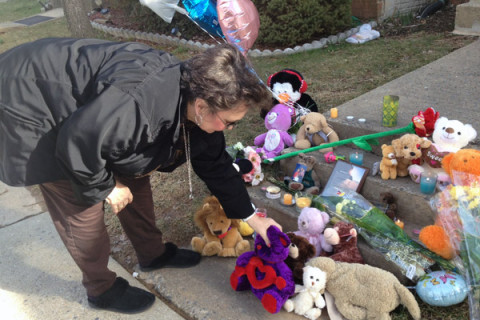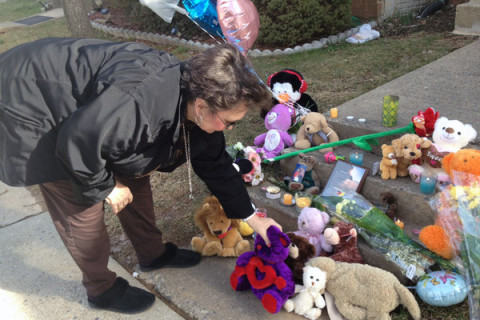ROCKVILLE, Md. — A Montgomery County judge ruled Zakieya Avery’s “ritualistic and barbaric” murders and stabbings of her four young children during an exorcism were not the act of “a rational, normal-thinking human being,” and found her not criminally responsible for her actions.
Avery was ordered to be committed to the state’s mental hospital, Clifton T. Perkins Hospital, for an undetermined period of time.
On Monday, Avery pleaded guilty to two counts of first-degree murder for the killings of her son Norell, 1, and daughter Zyana, 2, and two counts of attempted murder in the attacks of her son and daughter. WTOP is withholding the names of the two children who survived because they are minors and victims of violent crimes.
Before declaring Avery not criminally responsible — the Maryland equivalent to an insanity defense — Circuit Court judge Terrence McGann detailed how he came to his conclusion.
McGann said Avery didn’t stand to gain financially from the murders of her children, had no history of anger problem and no evidence of alcohol or drug problems.
The judge said he was convinced, based on Avery’s statements and actions before the Jan. 17, 2014 attacks, that Avery believed her home had been invaded by demons.
Avery shared a Germantown town house with co-defendant Monifa Sanford, who pleaded guilty to the crimes in 2015, and also was found not criminally responsible.
“I find her statements inconsistent with a rational brain,” said McGann.
Recounting Avery’s statements about being impregnated by an imaginary boyfriend and witness testimony that she was “responding to internal stimuli” shortly before the murders, the judge said he believed Avery was not dealing with reality.
“I found through reviewing all the pre-stabbing evidence that Ms. Avery was delusional,” the judge said.
A psychiatrist retained by the defense found Avery not criminally responsible, but the report provided to prosecutors was inconclusive.
“It’s difficult to fathom any mother committing filicide [the killing of one’s son or daughter],” McGann said.
McGann said Avery’s children “were butchered,” yet “for 9 years you dealt with pregnancy, childbirth, and you must have felt great joy when they learned to walk,” and accomplished other landmarks of childhood.
“How could Ms. Avery have committed these chilling, macabre crimes?” McGann wondered aloud. “What rational, normal-thinking human being could conclude her children would be better off” by undergoing an exorcism.
McGann said that based on Avery’s diagnoses of bipolar disorder and borderline personality disorder, she was not criminally responsible for her actions two years ago.
Avery’s family and friends, including those who testified about her mental health history, quietly hugged each other and sobbed as Avery was handcuffed and led away by sheriff’s deputies.
Outside the courtroom, Avery’s cousin Kalhia Brooks expressed bittersweet relief.
“She’s where she needs to be,” Brooks said. “She definitely needs psychiatric help, she didn’t belong in a prison.”
Brooks spoke with Avery this week, and said for the first time in years, the now-medicated Avery “is the Kia I remember.”
Brooks said Avery initially had no recollection of the murders. “It was like a blur,” she said.
On Monday, Brooks watched as Avery followed along with the prosecution’s proffer of what happened during the attack.
“She was unaware of the details, it was like she was hearing it for the first time,” Brooks said.
Brooks was moved by the judge’s acknowledgment that Avery had been a good mother for years.
“I can honestly say that my cousin absolutely adored and loved her children,” Brooks said. “So to see they ended up dying by her hands, it’s very mind boggling.”








